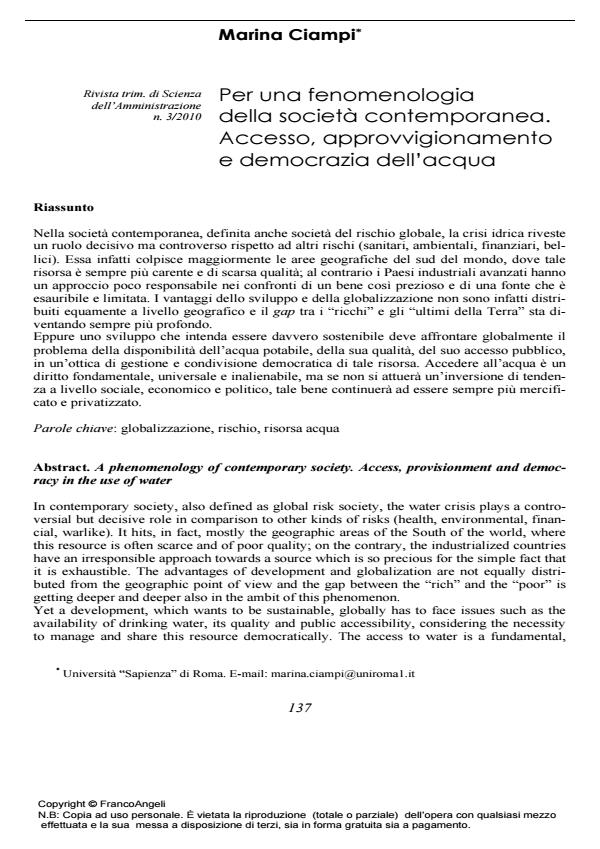A phenomenology of contemporary society. Access, provisionment and democracy in the use of water
Journal title RIVISTA TRIMESTRALE DI SCIENZA DELL’AMMINISTRAZIONE
Author/s Marina Ciampi
Publishing Year 2010 Issue 2010/3
Language Italian Pages 13 P. 137-149 File size 645 KB
DOI 10.3280/SA2010-003013
DOI is like a bar code for intellectual property: to have more infomation
click here
Below, you can see the article first page
If you want to buy this article in PDF format, you can do it, following the instructions to buy download credits

FrancoAngeli is member of Publishers International Linking Association, Inc (PILA), a not-for-profit association which run the CrossRef service enabling links to and from online scholarly content.
In contemporary society, also defined as global risk society, the water crisis plays a controversial but decisive role in comparison to other kinds of risks (health, environmental, financial, warlike). It hits, in fact, mostly the geographic areas of the South of the world, where this resource is often scarce and of poor quality; on the contrary, the industrialized countries have an irresponsible approach towards a source which is so precious for the simple fact that it is exhaustible. The advantages of development and globalization are not equally distributed from the geographic point of view and the gap between the "rich" and the "poor" is getting deeper and deeper also in the ambit of this phenomenon. Yet a development, which wants to be sustainable, globally has to face issues such as the availability of drinking water, its quality and public accessibility, considering the necessity to manage and share this resource democratically. The access to water is a fundamental, universal and inalienable right, but if there is not a turn-round from the social, economical and political point of view, rather than be the eternal symbol of life, this resource will become more and more a precious and rare good.
Keywords: Globalization, risk, water resource
Marina Ciampi, Per una fenomenologia della società contemporanea. Accesso, approvvigionamento e democrazia dell’acqua in "RIVISTA TRIMESTRALE DI SCIENZA DELL’AMMINISTRAZIONE" 3/2010, pp 137-149, DOI: 10.3280/SA2010-003013